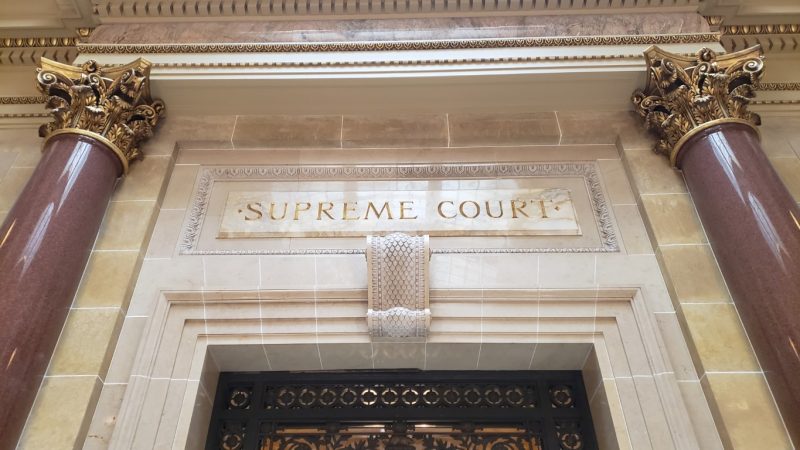Gov. Tony Evers and AG Josh Kaul are asking the state Supreme Court to strike down part of the GOP lame-duck legislative package passed two years ago.
Kaul says he’s challenging 2018 lame-duck legislation because the Joint Finance Committee’s oversight of DOJ settlements “impedes” the agency’s ability to enforce environmental and consumer protection laws.
“The Wisconsin Department of Justice works to make things right when consumers are cheated or when our air, water, or land is polluted,” Kaul said in a statement. “The provision of the 2018 extraordinary session legislation that’s at issue in this case impedes that critical work by giving the state legislature a role in executive branch functions, in violation of the Wisconsin Constitution’s separation of powers.”
The suit filed Monday against the Republican-controlled Legislature challenges a measure from the package that requires the AG to seek approval from the Joint Finance Committee before settling some lawsuits. Kaul argues that measure gives the Legislature a “fundamentally unconstitutional role” in executive branch functions.
>> WisPolitics is now on the State Affairs network. Get custom keyword notifications, bill tracking and all WisPolitics content. Get the app or access via desktop.
“Because settling these plaintiff-side civil cases represents a quintessential executive function in which the legislative branch has no legitimate institutional interest, transferring this executive authority to JCF violates the constitutional separation of powers — the ‘central bulwark of our liberty,'” Kaul wrote in the filing.
The offices of Senate Majority Leader Scott Fitzgerald, R-Juneau, Assembly Speaker Robin Vos, R-Rochester, and JFC Co-Chairs Rep. John Nygren, R-Marinette, and Sen. Alberta Darling, R-River Hills, were not immediately available for comment.
The suit comes some four months after the state Supreme Court rebuffed a lawsuit from a coalition of labor unions, upholding laws giving GOP legislators the power to intervene in court actions involving the Department of Justice as well as oversight of settlements the agency reaches.
The court in July also upheld provisions giving the Joint Committee of Legislative Organization the power to review any security changes at the state Capitol and allowing lawmakers to suspend administrative rules multiple times.
But the 5-2 conservative majority that was in place at the time wrote its decision on the DOJ provisions was “limited” and the court wasn’t expressing a position on whether the laws violate the separation of powers. The conservative advantage on the court has since narrowed to 4-3 after Justice Jill Karofsky defeated former Justice Daniel Kelly in April and assumed office in August.
That ruling set the stage for the new lawsuit. Kaul at the time said the high court’s decision would inevitably lead to additional suits because the majority failed to provide needed clarity on how those restrictions impact his agency.
He said that leaves unresolved how the laws have been applied so far during his term.
Kaul and the Joint Finance Committee have been at odds for much of the past two years over how to handle proposed settlements, though the committee approved several in June.
In Monday’s filing, Kaul argued the law is unconstitutional as applied to two categories of cases: civil suits enforcing environmental or consumer protection laws; and cases involving executive branch agencies.
See the suit here.



